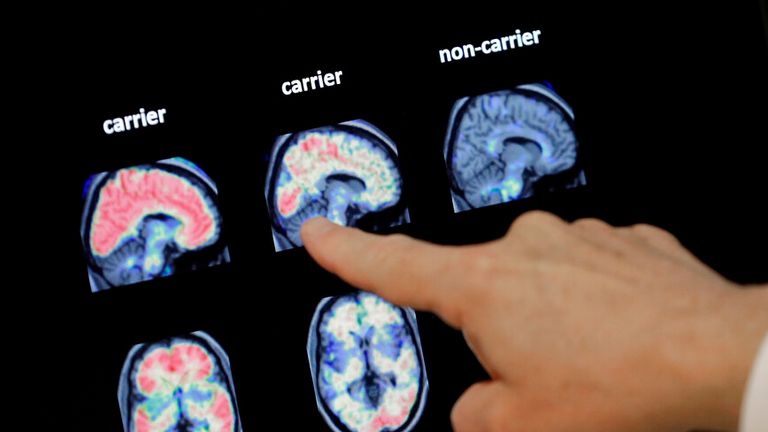A blood test could be just as good at detecting the signs of Alzheimer’s disease as painful and invasive lumbar punctures, research suggests.
Measuring levels of a protein called p-tau217 in the blood could be just as accurate at detecting signs of the progressive condition, experts say.
The protein is a marker for biological changes in the brain for people with Alzheimer’s disease, which is a form of dementia.
The new findings have the potential to “revolutionise” diagnosis for people who are suspected to have Alzheimer’s, experts say.
It could also be better than a range of other tests currently under development.
In the study of 786 people, the researchers were able to use the ALZpath p-tau217 test to identify patients as likely, intermediate and unlikely to have Alzheimer’s disease.
“This study is a hugely welcome step in the right direction as it shows that blood tests can be just as accurate as more invasive and expensive tests at predicting if someone has features of Alzheimer’s disease in their brain,” said Dr Richard Oakley, associate director of research and innovation at the Alzheimer’s Society.
“Furthermore, it suggests results from these tests could be clear enough to not require further follow-up investigations for some people living with Alzheimer’s disease, which could speed up the diagnosis pathway significantly in future.
“However, we still need to see more research across different communities to understand how effective these blood tests are across everyone who lives with Alzheimer’s disease.”
Read more from Sky News:
New cancer drug helping children kinder than chemotherapy
What are the symptoms of measles?
‘Huge potential’
Currently the only way to prove someone has a build-up of the proteins in the brain is to have a lumbar puncture or amyloid PET scan, which are available in only about one in 20 NHS memory clinics.
A lumbar puncture involves a needle being inserted into the lower back, between the bones in the spine.
Dr Sheona Scales, director of research at Alzheimer’s Research UK, said: “This study suggests that measuring levels of a protein called p-tau217 in the blood could be as accurate as currently used lumbar punctures for detecting the biological hallmarks of Alzheimer’s disease, and superior to a range of other tests currently under development.
“This adds to a growing body of evidence that this particular test has huge potential to revolutionise diagnosis for people with suspected Alzheimer’s.”
However, she said a better picture is needed of how these types of blood tests perform day-to-day in real-world healthcare systems.
The study from Dr Nicholas Ashton at the University of Gothenburg, and colleagues, is published in the Jama Neurology journal.

